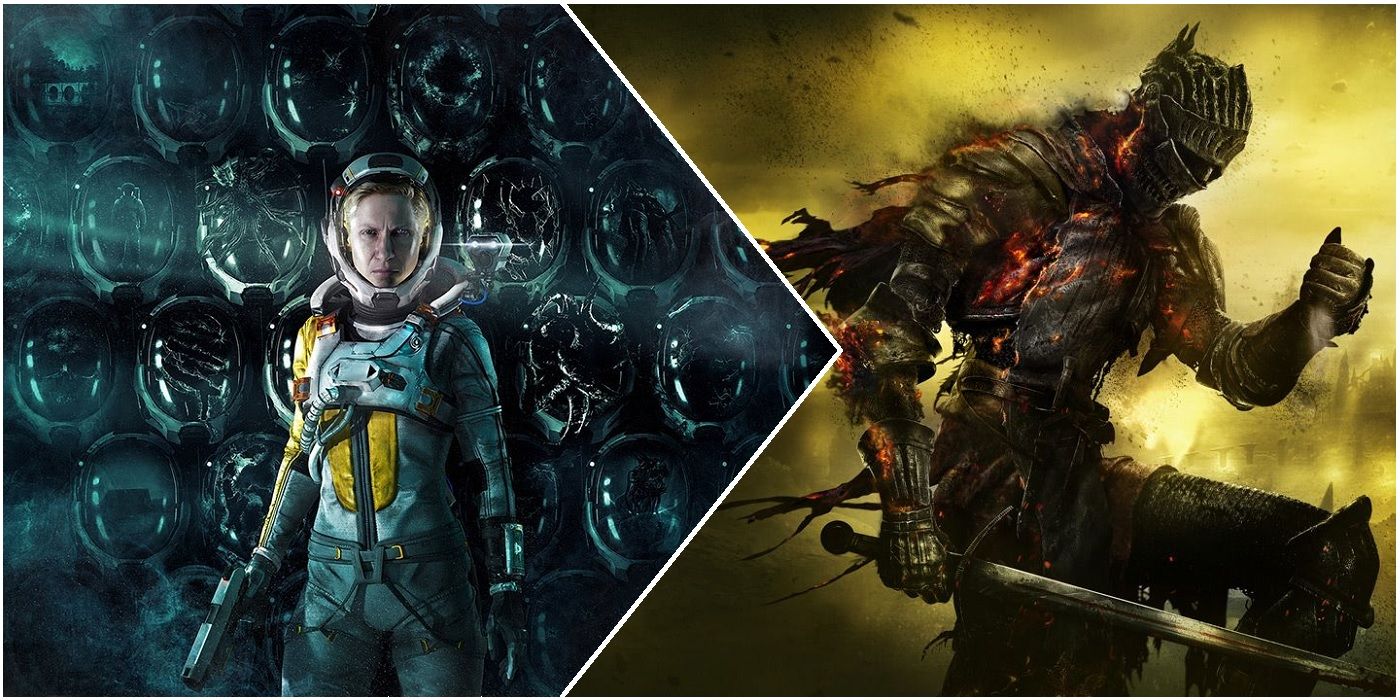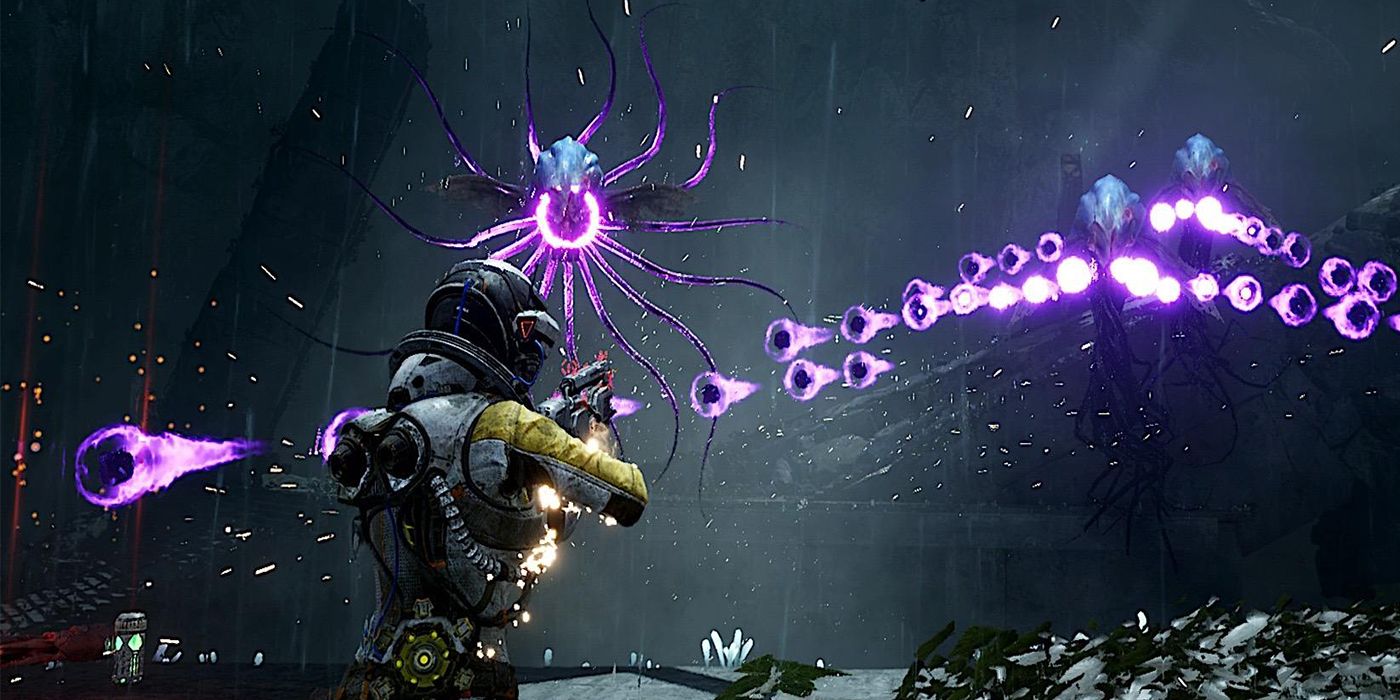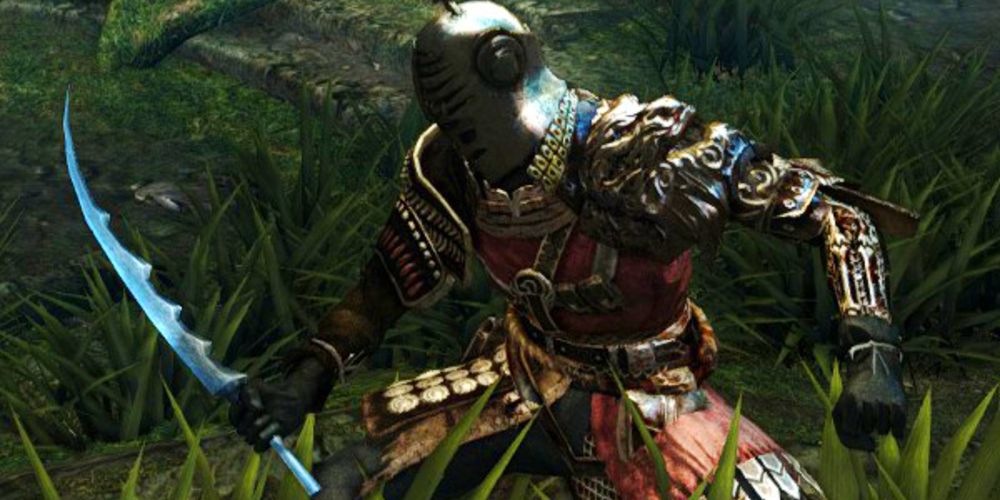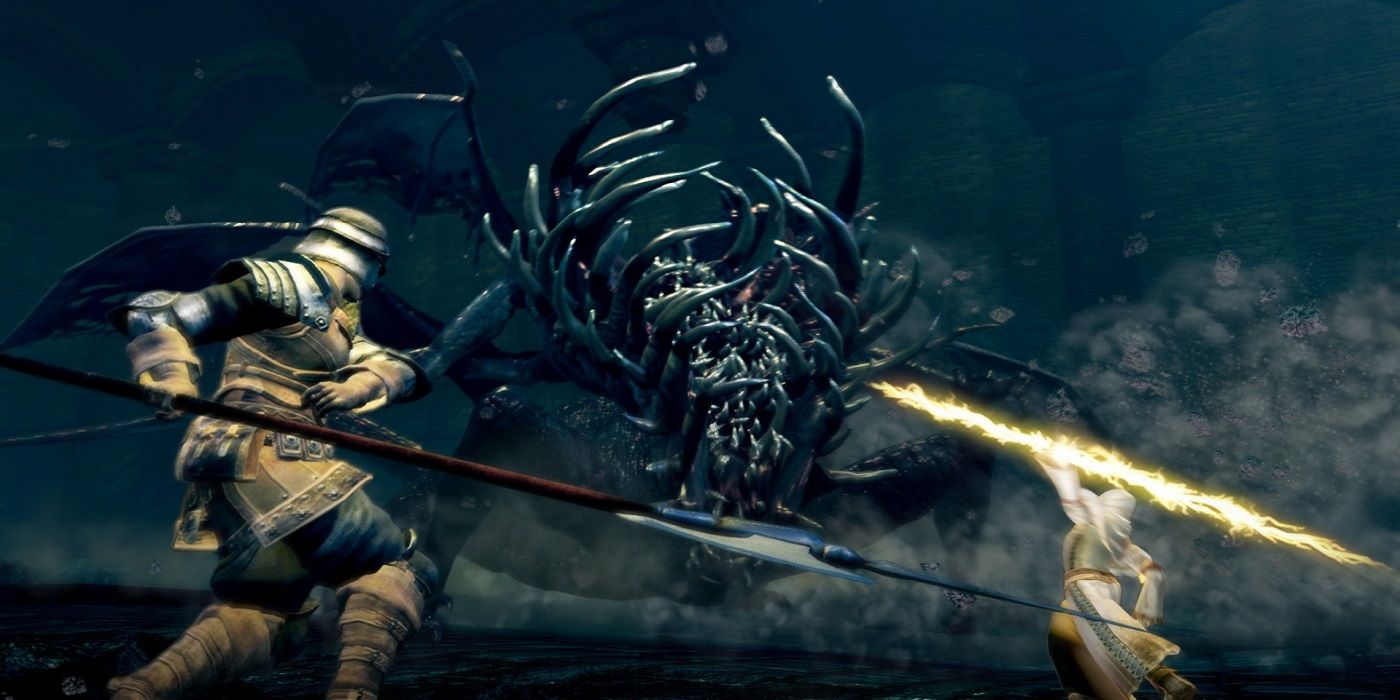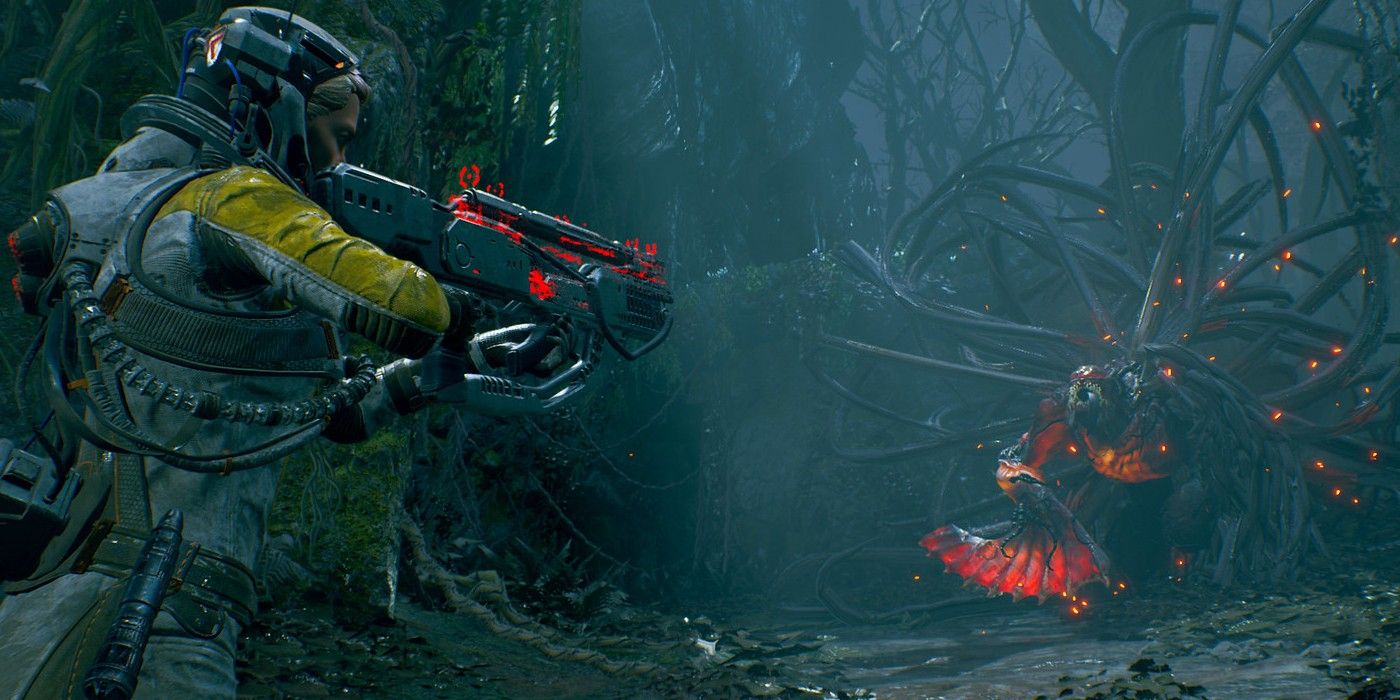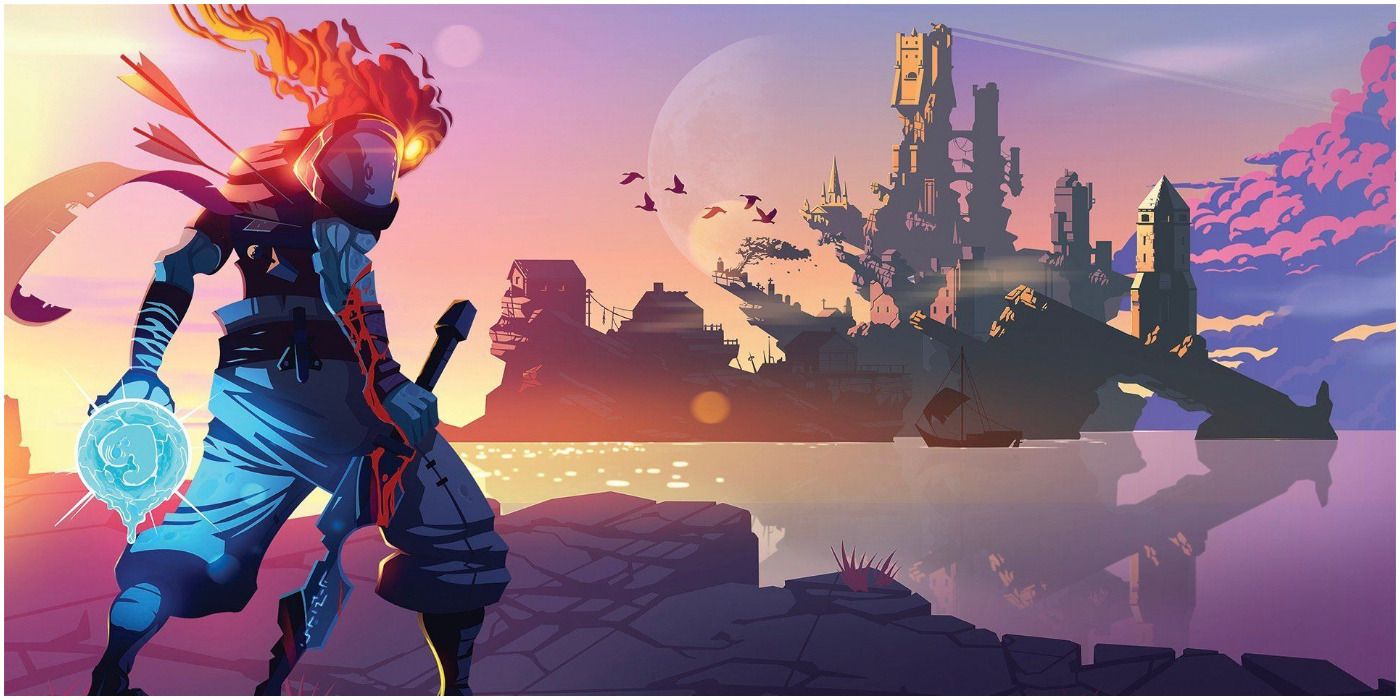Drawing comparisons to any game with any level of difficulty to Dark Souls has become somewhat of a meme in recent years, with Housemarque's Returnal being the latest title to earn this qualifier. However, while the kneejerk reaction to just label a game "the new Dark Souls" or a Soulslike for its difficulty, it's still up in the air of whether or not Returnal's difficulty is enough to warrant the comparison.
So, let's break down the difficulty in Returnal and Dark Souls and see where the two compare, where they contrast, and where Housemarque's PS5 exclusive lands among Soulslikes. In some cases, there might even better examples to draw from in order to get a better grasp of how these games approach difficulty and how the process of teaching the player through trial and lots of error works in both games.
How Returnal Handles Difficulty
With Returnal being a roguelike/rogue-lite, the difficulty often comes from the game creating procedurally generated rooms that all work around the game's combat and traversal mechanics. This means that the main obstacle in the way of progression is learning how these different mechanics work in combination with each other. Utilizing platforming and different fire modes will be pivotal to survive against enemies and find new upgrades. The major challenge comes from the way that memorization isn't an option, since the entire world is recreated between separate runs through the alien planet, meaning that previous knowledge of the exact map won't help.
Combining the constantly redesigned map with the fact that the player character is essentially set back to zero at the beginning of each run means that progress becomes more skill-based than levels or items. Of course, being more rogue-lite than roguelike, some of Returnal's items like the Sunface Fragments are permanently acquired, with several giving players new advantages in traversal and combat. However, everything from how many enemies will appear in any given run to which weapons will spawn can add a level of randomness that forces players to adapt quickly and become familiar with every mechanic.
How Dark Souls Handles Difficulty
In contrast to Returnal, the Dark Souls formula is much more focused on teaching a player how to survive the current area, one level and boss at a time. This is generally accomplished by surprising players with strategies like leaving enticing items out to lure them into a trap, even making treasure chests into an enemy that can and will kill the unprepared. Memorization becomes key for surviving any given level in the series, since knowing enemy placements means that the player can have the upper-hand when coming back after death.
Then there are the bosses, which usually attack with heavily telegraphed movements that are easily avoidable once the player learns what to look for, but can kill most builds in only a few hits. This is where the claim that FromSoftware's games are always "hard, but fair" comes from, since a player's skill in reading these attacks and either dodging or blocking properly can get players all the way though Dark Souls without getting hit. There are plenty of moments where level designs and boss telegraphs are designed to deceive, of course, poking at the fairness of it a bit, although every fight is still designed to teach players how to succeed.
Returnal's Difficulty Emulates Dark Souls
One of the clearest examples of Returnal emulating the Dark Souls difficulty formula is how the first run players attempt generally ends with a powerful enemy spawning only a few rooms after first learning how to fire a gun. It's reminiscent of how Demon's Souls gives players their first death with Vanguard and Dark Souls puts a player with no weapon up against the Asylum Demon to get crushed. In all three of these examples, a player can definitely make it through this initial boss fight, but these are moments built to teach the player that death is going to be a part of the journey.
All three of these games share a similar mentality in their difficulty, in that they all put players up against something that they couldn't possibly hope to beat on their first try and set them up to learn by getting killed. Both FromSoftware and Housemarque's development strategies have chosen to teach players by putting them in dangerous situations where either the player adapts and overcomes or dies and has to try again. This is likely why fans are so quick to make the comparison between the two, because the approach to difficulty is the same at their core even if the set dressing on top is vastly different.
Housemarque Made Returnal Unique on Top of Comparisons
Having Returnal utilize the rogue-lite genre the way the developer did has helped to take the Souls-like difficulty formula and turn it heavily on its head. Essentially, the difficulty is built to make memorization of the map key in Dark Souls and other titles like it, while Returnal has more of a focus on mastering core mechanics and the intricacies of combat. This is something that most roguelike's have in common, but Housemarque has brought this concept to a massive world that eventually gives players dozens of weapons and enemies to learn and perfect.
Similarly, having multiple in-game economies with the two different currencies of ether and oblities, combined with healing and health upgrades randomly thrown around every floor changes how players progress through each run. This does add a bit of RNG to whether or not a run is successful, since the game can randomly choose to not drop enough health, but that is a common part of roguelikes like Returnal. However, this does mean that there are a few games that might make a better comparison than Dark Souls, with some still being well within the Souls-like genre.
Better Comparisons For Returnal's Gameplay and Difficulty
The wiping of the slate back to zero every time a player dies in Returnal often means that going into runs in order to grind isn't really an option. Within FromSoftware's catalogue, this actually winds up drawing a sharper comparison with Sekiro since level grinding can give players some minor improvements. This is nothing compared to what players can do in the mainline Dark Souls titles in order to increase there health, stamina, and attack power between boss fight attempts.
Then for Souls-likes from other developers, the third-person shooter mechanics do lend themselves to a Remnant: From the Ashes comparison. However, the game Returnal is most like is probably Dead Cells, a roguelike with heavy metroidvania elements that puts players in random rooms with random enemies, but gives them permanent upgrades for increased traversal. Since the Souls-like genre is often compared to being a 3D metroidvania, with winding levels that lead back to each other combined with Dark Souls' stellar boss fights, the similarities are clearly there.
Returnal is available now for PS5.

